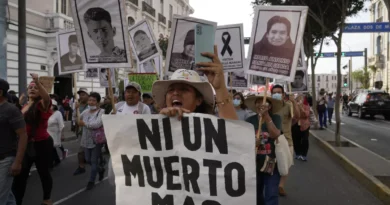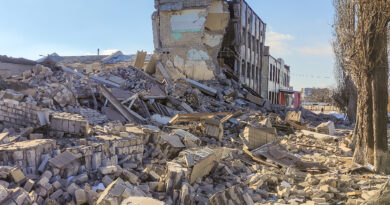Israel: democracy in name, not in essence
EUGENIO GARCIA GASCON
After the elections on November 1, in which the bloc led by Benjamin Netanyahu registered a clear victory, a harsh debate has been opened about the nature that the Jewish state can acquire with the next government. The victory of the ultra-nationalist right and the ultra-orthodox religious parties is alarming citizens of secular and moderate ideology, who are in a clear minority and from whose ranks an end is predicted for the peculiar democratic system that has existed since the establishment of Israel in 1948 .
The state's lawyer, Gali Baharav-Miara, has warned the political class of the risk that is run after the leaders of the coalition have announced judicial reforms that will deeply affect the nature of the democratic system. Among the planned reforms is the submission of the Supreme Court to parliament, changes in the election of its president, changes in the procedures for electing magistrates, or making it impossible for the Supreme Court to amend certain government decisions and appointments.
"Be vigilant since a government of the majority, without constitutional counterweights that balance their power, is not democracy in an essential sense," said the state lawyer after a large number of politicians from the new opposition have denounced the panorama they have in front. "Without judicial supervision and without independent legal support, we will be left with only the principle of majority rule, which will be a democracy in name, but not in essence," Baharav-Miara stressed during a speech at the University of Haifa.
Baharav-Miara alluded to one of the major conflicts that will soon be resolved, the well-known "Itamar Ben-Gvir law", in reference to the new Minister of National Security, who will be in charge of the police. Ben-Gvir is an extremist settler, a religious nationalist, who has supported a racist party and who insists that the police have to blindly obey the instructions they receive from him, for example, when opening and closing investigations like the ones that they harass Netanyahu for corruption, or other political leaders.
The state lawyer insists that in a democratic state the police must be autonomous when opening an investigation, guided by the legal framework, a characteristic of a democratic state. “Politicizing the law enforcement system will seriously undermine the most basic principles of the rule of law, namely equality, non-arbitrariness and non-bias,” Baharav-Miara warned.
For her part, the president of the Supreme Court, who just a few days ago made a dramatic appeal to the Netanyahu bloc in the same direction, canceled a speech in which she was supposed to talk about these issues. In a statement, Esther Hayut explained that she did not want to intervene at a time as sensitive as the present.
The problems facing Israel are unprecedented. Until now, the controversies and debates were fought abroad and had to do with the judicial system that Israel applies to the Palestinians, an issue that is usually covered up by arguing that the Jewish state is the only democratic country in the Middle East. However, now it is the rule of law within Israel that is at stake.
The laws that the Knesset has hastily approved in recent days, which the new opposition describes as "personal" laws since they have been cut to the size of four ministers with names and surnames, could annul "the system of checks and balances between the different authorities,” says Baharav-Miara. The laws will allow an ultra-Orthodox politician convicted of tax evasion to serve as a minister, and two ultra-nationalist and religious ministers to have great powers to carry out their policies in the occupied Palestinian territories of the West Bank. In addition, the planned legislation could allow Prime Minister Netanyahu to avoid the corruption trial that is taking place in a Jerusalem court.
A large number of progressive Jews in the United States, and also conservatives, are warning of a rapid deterioration of democracy, and what is happening these days in the Knesset or parliament would simply confirm it. According to these opinions, the democratic system is increasingly precarious, although it may well be pointed out that Israel is not the only case that points in this direction, since in different Western countries, including Europe, similar processes are being seen incipient.
In the midst of this debate, an editorial in The New York Times, a newspaper that regularly defends Israel, claimed that Netanyahu has become "a threat to the future" of the country, a threat even to the "idea of a Jewish homeland." ”, by seeking, among other things, ways to “undermine the authority of the Supreme Court”.













